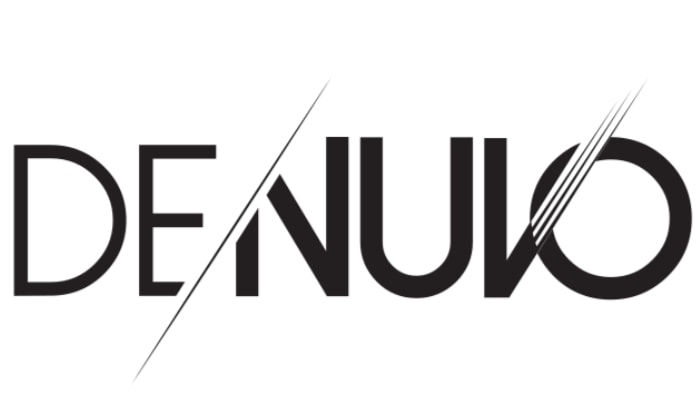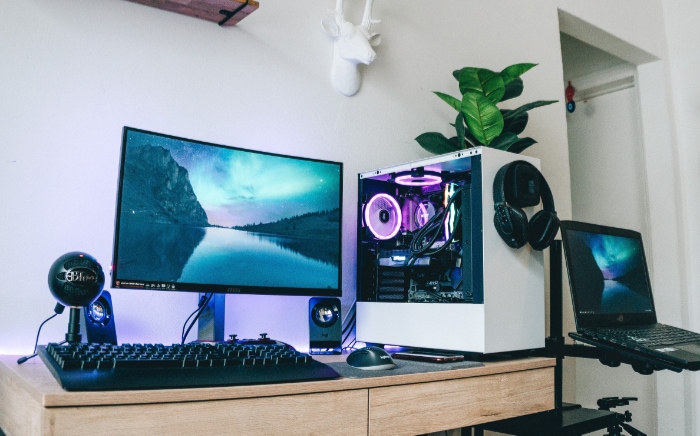What Is Denuvo and Why Do Some Gamers Dislike It?

Unpacking the world of video gaming often leads us to fascinating concepts and heated debates. Among the subjects that stir much discussion stands Denuvo, a term recognized by gamers and developers alike.
As a Digital Rights Management (DRM) solution, Denuvo plays a significant role in the industry, providing protective measures against piracy for game publishers and developers. But this same technology is a point of contention for many gaming enthusiasts, stirring up an ongoing controversy that merits exploration.
Exploring Denuvo: An Anti-Tamper Technology
Denuvo Anti-Tamper, or simply Denuvo, is a technology designed to protect software applications from being pirated. In more technical terms, it’s a form of Digital Rights Management (DRM), acting as a protective shield around the main game application to guard against tampering and reverse engineering.
Denuvo’s main objective is to prevent ‘cracking,’ which is the modification of the game’s code to bypass DRM systems, effectively enabling illegal distribution and use of the software.
While the primary purpose of Denuvo isn’t to entirely prevent piracy, it aims to secure the initial sales window of games – a period that is often the most profitable for game publishers and developers.
The Origin and Development of Denuvo
Founded by a team with a rich history in digital rights management and copy protection, Denuvo Software Solutions GmbH introduced its Anti-Tamper technology in 2014. The company, headquartered in Austria, was initially a part of the larger Sony DADC DigitalWorks.
The anti-tamper system was first implemented in the popular game ‘FIFA 15’.
The development and implementation of Denuvo have always revolved around the mission of combating video game piracy. As an ever-evolving technology, Denuvo continually modifies its approach to keep pace with sophisticated cracking methods, leading to the release of numerous versions of the software over the years.
Despite these constant changes, the main goal remains the same: to protect the sales of game developers and publishers from the detrimental impacts of piracy.
The implementation of Denuvo isn’t universal, as it’s up to individual game developers and publishers to decide whether to use the system. Some major names in the gaming industry have adopted it, such as Electronic Arts, Ubisoft, and Warner Bros.
The Genesis of Denuvo: A Response to Gaming Piracy
Piracy has been a persistent problem in the video game industry for decades. The illegal copying and distribution of games infringe upon the rights of game developers and publishers, leading to significant financial losses.
It’s an issue that has only been amplified with the rise of the digital era, where games can be shared widely with relative ease.
The Financial Impact of Piracy
The financial implications of game piracy can be enormous. Although it’s challenging to pinpoint exact figures, industry experts believe that piracy results in billions of dollars in lost revenue each year.
These financial losses are detrimental to the developers and publishers, affecting their ability to invest in new games, technologies, and innovations. It’s important to remember that behind every game are teams of designers, programmers, writers, and artists whose livelihoods depend on legitimate game sales.
Denuvo: A Solution to Protect Developers’ Interests
In the face of this rampant piracy, Denuvo Anti-Tamper technology was born. It was designed as a solution to protect game developers’ and publishers’ interests by fortifying their games against unauthorized tampering and copying.
By acting as a robust layer of defense, Denuvo aims to prolong the period between the release of a game and the appearance of the first working crack, thereby safeguarding the crucial early sales window when games often garner the majority of their legitimate revenue.
Denuvo doesn’t claim to completely prevent piracy—rather, its primary goal is to make cracking games significantly more difficult and time-consuming. The objective is to deter pirates and encourage potential players to purchase the games legally, ultimately ensuring that the creators are rightfully compensated for their work.
Controversy Unraveled: Why Some Gamers Disapprove of Denuvo

As much as Denuvo has been hailed as a necessary innovation for protecting developers’ interests, it has also been a source of significant controversy within the gaming community.
The Impact on Game Performance
A primary concern raised by many gamers is the perceived negative impact Denuvo has on game performance. Some players report longer load times, framerate drops, and even crashes that they attribute to the presence of Denuvo.
While these performance issues can vary from game to game and system to system, they have nevertheless fueled a portion of the gaming community’s resentment towards the DRM system.
Limitations on Offline Gaming
Another criticism centers around Denuvo’s online requirements. Certain versions of Denuvo require regular online validation to verify the game’s legitimacy.
This requirement can be a stumbling block for players with unreliable internet connections or those who prefer or need to play offline. This limitation can feel particularly restrictive, given that single-player games have traditionally not required internet access.
Ineffectiveness Against Piracy
Despite Denuvo’s intent to curb piracy, critics point to the numerous instances where Denuvo-protected games have been cracked, sometimes within days of release. These occurrences fuel the argument that Denuvo is not only ineffective at its primary goal but also imposes unnecessary burdens on legitimate consumers while failing to stop pirates.
Issues of Fair Use and Ownership
A more philosophical debate surrounding Denuvo involves the concepts of fair use and ownership. Some gamers believe that once they purchase a game, they should be free to modify it, create backups, or play it on different machines.
Denuvo, in its mission to prevent tampering, inherently limits these activities. This situation leads some gamers to feel like they don’t truly own the games they’ve purchased, sparking further discontent with the DRM system.
While these are the major grievances many gamers have with Denuvo, it’s important to note that not all gamers share these sentiments, and many are indifferent to or even supportive of anti-piracy measures.
Counterpoints: Developers and Denuvo’s Defense
However, the story of Denuvo would be incomplete without addressing the counterpoints presented by game developers and Denuvo itself. These parties staunchly defend the need for such a technology, arguing that its benefits outweigh its potential drawbacks.
The Necessity of DRM for Protecting Sales
One of the primary defenses offered by game developers and Denuvo itself is that DRM systems are a necessary tool for protecting the financial viability of the gaming industry. Without DRM, they argue, the proliferation of piracy would lead to significant revenue loss, which could affect the overall quality and quantity of games produced.
Developers who implement Denuvo often emphasize that the initial sales window of a game, typically the first few weeks post-release, is crucial for recuperating development costs and funding future projects. They believe that Denuvo, by providing a line of defense against early piracy, plays a significant role in protecting this window.
Rebuttal Against Claims of Performance Issues
In response to claims that Denuvo causes performance issues, both Denuvo and some developers have argued that any performance problems are more likely attributable to other factors such as game optimization and player’s hardware configurations. They maintain that Denuvo is designed to have minimal impact on game performance.
However, given the variations in players’ experiences and the complexity of pinpointing exact causes of performance issues, this remains a contested point. It’s also worth noting that several games have seen performance improvements after Denuvo was removed, adding fuel to the argument.
Steps Taken to Address Gamers’ Concerns
In recognition of the criticism from the gaming community, Denuvo and game developers have made efforts to address some of the concerns. For example, some games have had Denuvo removed after the critical initial sales window has passed.
Despite these efforts, the debate around Denuvo and DRM in general continues to be a divisive topic in the gaming community. Whether these measures are enough to quell gamers’ discontent or whether alternative solutions need to be explored is a question that remains open for further discussion.
Conclusion
Navigating the world of digital rights management systems like Denuvo provides valuable insight into the complexities and challenges of the gaming industry. We’ve learned that Denuvo serves as a robust anti-piracy tool, aiming to protect the essential sales window following a game’s release, thereby ensuring the financial security of developers and publishers.
Yet, we’ve also explored the criticisms lodged against Denuvo from a substantial segment of the gaming community. Concerns about performance degradation, limitations on offline play, the system’s effectiveness, and issues surrounding fair use and ownership highlight the friction between the business needs of the gaming industry and the expectations of its consumer base.
In response to these criticisms, developers and Denuvo have offered defenses and implemented certain measures aimed at addressing gamers’ concerns. The effectiveness and acceptance of these measures, however, continue to be a subject of discussion.
The controversy surrounding Denuvo represents a broader debate on balancing the need for piracy protection with the optimal gaming experience. This debate is unlikely to disappear anytime soon, given the evolving nature of both game development and piracy techniques.
As gamers, developers, and industry stakeholders, it is crucial to stay informed and participate in these conversations that shape the future of the gaming industry.


